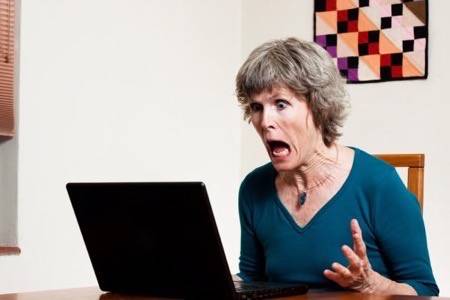
Hello There, Racists! is the hot new Tumblr everyone is talking about on Twitter. Best New Tumblr, they are calling it. Like much of the digital vigilantism happening since President Obama’s re-election, this particular trending Tumblr is about shaming racists.
What It Is
Hello There, Racists! began on November 11, but didn’t seem to pick up steam until Wednesday, after it was tweeted by Jeremy Botter, the editor of the Houston Chronicle’s Brawl sports blog, quickly followed by K. Thor Jensen, the award-winning writer, illustrator, and influential Twitter user. The Tumblr has, at press time, shamed 60 people based on their racist tweets. The blog collects not just the alleged racists offensive online remarks, but all publicly available information about them. This includes pictures from their Facebook page, as well as where they live and what high school they go to. (A solid majority of the people being shamed are high schoolers.)
The About page for to Hello There, Racists! claims that because the “(un)official motto of the GOP is ‘personal responsibility,’ ” these racists “words, names and faces” will “be documented so that they may be responsible for them.” Tweets about the Tumblr show people are even writing letters to school officials to let them know their students are behaving in a racist manner online. To those familiar with Internet lingo, this here is a “doxxing.”

Is This A Good Thing?
While it might make Web citizens feel good to tell off some jerks on the Internet, is online naming and harassment really the way to go? Matt Buchanan thinks so, and said as much in his Buzzfeed piece titled “Why Social Media Shaming Is Okay,” written in response to a Twitter debate over my musings prompted by the second annual International Digital Ethics Symposium.
Buchanan writes social media shaming is OK because “the consensus is rapidly crystallizing that the rules and sensibilities of the rest of our lives should largely apply online as well.” (Ironically, Buchanan doesn’t think the rules and sensibilities journalists practice in real life regarding minors should apply to online coverage.) At face value, this idea that calling out these racists will teach them a lesson seems legit, until you think about the real effects of this kind of social media shaming.
Feeding A Persecution Complex
“A feeling of persecution does wonders to embolden someone,” said Jon Hendren, a well-known Internet troll, constant retweeter of teen bad behavior, and writer for the Web culture forum Something Awful. (Hendren distinguishes himself from the vigilante Tumblr by saying what he does is an “exhibition and not ‘Hey, lets find these [jerks] and publish where they live’” and added he repeatedly asks his followers to not engage with the people he retweets.)
“I mean, put yourself in the racist jerk’s shoes for a second,” wrote Hendren in gchat. “You post something terrible, and a bunch of progressive/liberal/whatever folks come out of the woodwork to mess with you. You’d be like ‘Well I must be on the right track if these people I didn’t like in the first place hate me.’ ”
Why Bother?
So why are we even bothering to shame someone on social media anyway? Two years ago harassing someone online for something they did, when 4chan and Anonymous did it, was frowned upon by many media outlets. In my impromptu gchat with Hendren, I asked him why he thinks vigilantism is now not only mainstream, but suddenly cool to do.
“Ironically, I think it has to do with the portrayal of ‘cyberbullies’ in the last few years,” wrote Hendren. “It’s become okay to go after people being mean on the Internet in the eyes of the law in some places, so why not go after people saying other horrible things?”
Media outlets have been unmasking trolls for more than a year now, the most recent and infamous being Violentacrez. I believe this type of coverage fosters a culture of social media justice where everyone feels empowered to be judge, jury and executioner. Vigilantism isn’t just for tween boys turning into super heroes any more.
What happens when we are done shaming racists, though? Are homophobes next? Misogynists? When those people have all been called out, do we come down on milder misanthropes? Or maybe even parking scofflaws? Is this just what we do now as so-called respectable members of society?
Photo courtesy of Shutterstock.
















